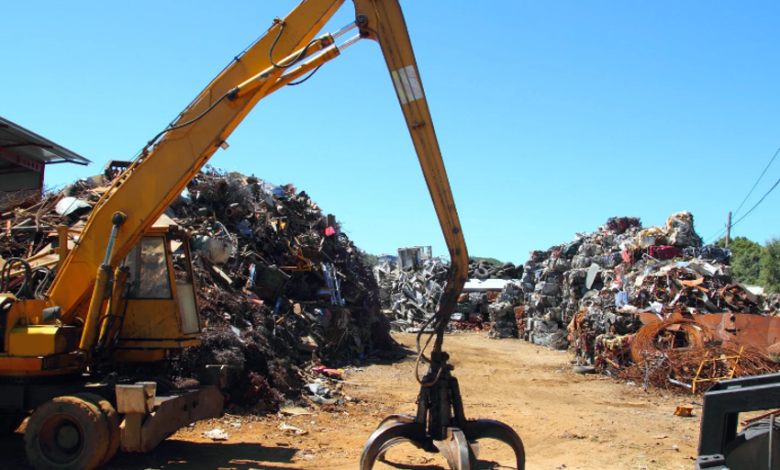Why Partnering with a Scrap Yard Simplifies Metal Disposal for Businesses

Managing excess metal waste can be a challenge for businesses across industries. From manufacturing to construction, companies generate significant amounts of scrap that require proper disposal. Choosing to work with a professional scrap yard in Rome not only streamlines the process but also provides financial, environmental, and logistical advantages. With expert handling, businesses can reduce clutter, maintain compliance, and ensure responsible recycling practices.
Streamlined Solutions Compared to Other Options
One of the primary reasons businesses turn to scrap yards is efficiency. Unlike general waste services, scrap yards specialize in handling various metals, ensuring that disposal is both organized and profitable. They provide sorting, grading, and recycling services that simplify what would otherwise be a time-consuming process for businesses.
Exploring the differences between a scrap yard and a junkyard highlights why scrap yards are better suited for businesses. While junkyards may focus on reselling parts or managing mixed waste, scrap yards specialize in metal recycling, offering structured solutions that align with industry needs. This specialization reduces the burden on internal teams and ensures materials are processed according to regulatory standards.
See also: Variance Analysis Methods That Help Growing Businesses Spot Financial Red Flags Early
Financial Benefits of Metal Recycling
Partnering with a scrap yard turns what many businesses see as waste into a revenue stream. Metals such as copper, aluminum, brass, and steel hold significant market value when recycled. Scrap yards compensate businesses based on weight, type, and quality of the metal provided, offsetting operational costs.
These financial returns can be reinvested into operations, equipment upgrades, or sustainability initiatives. Additionally, outsourcing scrap management reduces the overhead of internal waste handling, storage, and transportation; further improving profitability.
Supporting Sustainability Goals
Modern businesses face growing expectations to adopt environmentally responsible practices. Metal recycling directly supports sustainability by reducing the need for raw material extraction, lowering greenhouse gas emissions, and conserving natural resources.
Understanding why scrap yards are ideal for disposing of recycled metal and materials emphasizes their role in minimizing environmental impact. By diverting metal waste from landfills, businesses not only meet compliance obligations but also demonstrate corporate responsibility, which can enhance their reputation with clients, investors, and regulatory agencies.
Ensuring Compliance and Risk Reduction
Improper disposal of metals can lead to regulatory fines, environmental harm, and even legal consequences. Scrap yards ensure compliance with local and federal regulations governing waste management and recycling. Their expertise in safe handling, transportation, and processing reduces risk while providing businesses with documented proof of responsible disposal.
This accountability is particularly important for industries that produce hazardous or sensitive materials. By outsourcing to professionals, companies safeguard themselves against the operational risks associated with improper waste management.
Enhancing Operational Efficiency
A well-managed scrap disposal process helps businesses maintain cleaner, safer work environments. Scrap yards often provide collection services or drop-off solutions, saving businesses time and resources otherwise spent on logistics.
Freeing up warehouse or yard space that would otherwise be used for metal storage allows businesses to focus on core operations. The result is improved workflow, reduced hazards, and a more organized workplace.
Conclusion
Partnering with a professional scrap yard simplifies metal disposal by combining financial returns, sustainability, compliance, and operational efficiency. Unlike generic waste options, scrap yards provide specialized solutions that transform excess materials into opportunities for businesses. By outsourcing to experts, companies not only streamline operations but also align with environmental and financial goals, making scrap yards a vital partner in modern business practices.







